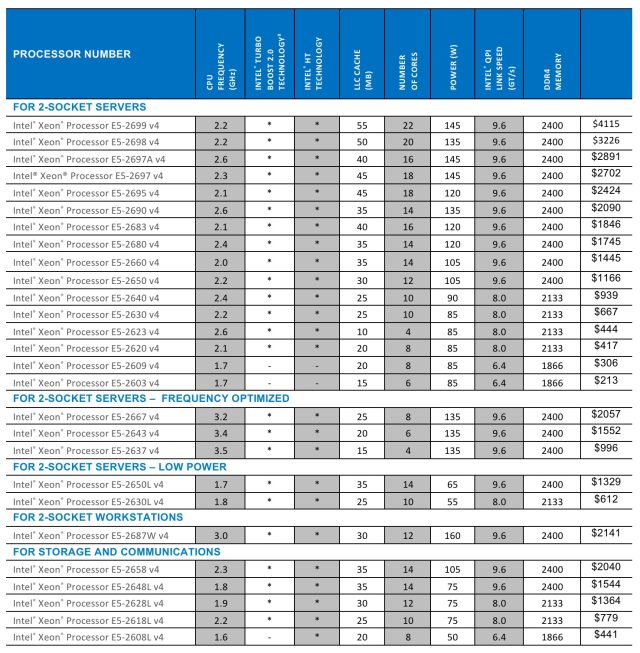The new 22- and 20-core CPUs offer more processing power for heavily parallelized workloads than the older Haswell-based CPUs, which topped out at a mere 18 cores per socket in the same 145W power envelope (at least, if you can afford to pay $4,115 or $3,226 for them, respectively).
The full lineup, available below, includes 27 CPUs for a variety of different use cases. There are 4, 6, 8, 10, 12, 14, 16, and 18-core versions you can buy for dual-socket servers based on your needs and your budget. There are "frequency optimized" versions with lower core counts but higher clock speeds if you have got a lot of single-threaded workloads that won't benefit from a ton of cores. And there are some low-power versions available if power consumption is more important than raw performance.

The "v4" denotes that these chips are all based on the Broadwell architecture, which is old news on the consumer side but brand-new on the server side (this is entirely normal; server CPU releases trail the consumer versions by about a year). This means they're based on a 14nm process rather than Haswell's 22nm process, which ought to improve power consumption and performance—it's part of the reason why 22 Broadwell cores can now fit into the same package and power envelope as 18 Haswell cores could. Intel also says the range supports the Transactional Synchronization Extensions (TSX), something that was included in comparable Haswell CPUs and some earlier Broadwell chips but disabled in a microcode update because of a bug.
If you don't buy servers, you probably won't have an opportunity to buy and use these chips, though some high-end workstations (including the Mac Pro, though it hasn't been updated in three years) have been known to offer them as options. If you'd like to know more, Intel's product page is linked above, and there's a PDF product sheet available here.
reader comments
80